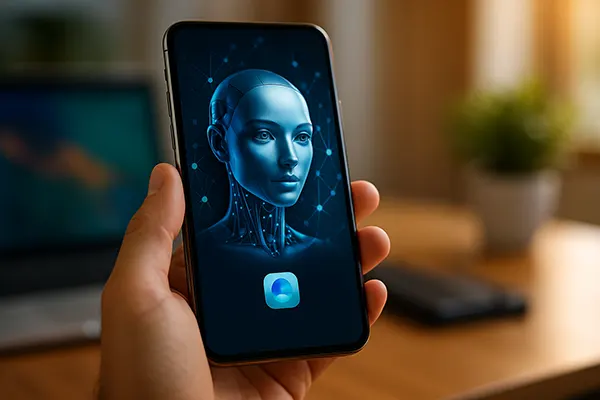Agentic artificial intelligence, or agentic AI, is reshaping how people interact with their mobile devices. Unlike traditional chatbots, which merely respond to queries, agentic AI systems can independently plan, decide, and perform actions on behalf of users. In 2025 and 2026, this technology will redefine mobile experiences across sectors — from productivity and health to finance and communication.
From Chatbots to Autonomous Mobile Agents
The main distinction between chatbots and agentic AI lies in autonomy. While chatbots depend on prompts, agentic systems can act proactively. Imagine a digital assistant that schedules meetings, compares subscription prices, manages emails, and even executes payments — all without constant input. In mobile environments, this means users will rely on digital agents as intelligent intermediaries between themselves and apps.
Within the broader landscape of mobile innovation, independent technology sources including https://iphone-szerviz.net/ provide analytical coverage on the development of iOS and Android ecosystems, focusing on how automation and AI integration continue to influence device functionality and user experience. This analytical perspective helps identify long-term trends in adaptive mobile technologies and their impact on everyday interactions.
Beyond convenience, this evolution signifies a paradigm shift in app design. Developers will create experiences not only for users but also for AI agents that interact with APIs, interpret data, and trigger complex workflows. The result will be faster, more intuitive mobile interactions that resemble collaboration rather than command execution.
Real-World Applications in 2025–2026
Agentic AI is already visible in health and fitness applications that track user habits and adjust recommendations dynamically. Soon, personal health agents will autonomously schedule doctor appointments, order prescriptions, and notify users about preventive care opportunities. Financial apps will employ AI agents to analyse spending patterns and make proactive suggestions to optimise budgets or investments.
In customer service, mobile applications will use embedded AI agents that can manage entire support chains — identifying issues, contacting third-party providers, and confirming resolutions. This automation reduces waiting times and eliminates repetitive communication. Similarly, travel applications will feature personal trip planners that handle booking changes or suggest alternate routes during disruptions.
Gaming and entertainment will also benefit. Mobile games may integrate agentic AI to tailor difficulty levels and in-game environments to individual preferences. Streaming services could deploy AI agents that anticipate moods and recommend content accordingly, offering experiences that evolve dynamically with user behaviour.

Challenges: Privacy, Security, and Regulation
The growing autonomy of mobile AI agents introduces new challenges. As these systems gain permission to access messages, calendars, banking data, and GPS, privacy risks multiply. Users must trust that their agents act ethically and securely. In 2025, several regulatory bodies, including the EU and the US Federal Trade Commission, are expected to strengthen oversight of data-handling standards for AI-driven applications.
Cybersecurity will also evolve. Attackers may attempt to manipulate agentic AI systems by injecting false data or hijacking decision-making logic. To counter this, developers are turning to verifiable AI frameworks and continuous behavioural monitoring. These solutions aim to detect anomalies in how digital agents act across devices and cloud networks.
Transparency is another key issue. Users need clear visibility into how and why AI agents make specific choices. Mobile applications must therefore include explainable AI (XAI) interfaces that allow individuals to understand the reasoning behind automated actions. Trust will depend not only on efficiency but also on comprehension and accountability.
What to Expect Next
Between 2025 and 2026, mobile AI agents will become more collaborative, forming ecosystems where multiple agents interact across devices and services. For instance, a car’s onboard assistant could coordinate with a smartphone to pre-plan routes and adjust smart home settings before arrival. This interconnectedness will mark the transition from isolated tools to integrated digital companions.
Developers will increasingly rely on multi-agent frameworks, where AI systems negotiate, share goals, and distribute tasks. This trend will push mobile applications toward decentralised intelligence, reducing dependence on cloud-based models and improving real-time decision-making. Edge AI, which processes data directly on devices, will play a central role in enabling this shift.
Ultimately, the rise of agentic AI in mobile applications will transform digital interactions from reactive exchanges into proactive collaboration. By combining autonomy, context awareness, and ethical design, these systems will shape a new generation of mobile technology — one that understands, anticipates, and genuinely assists.

